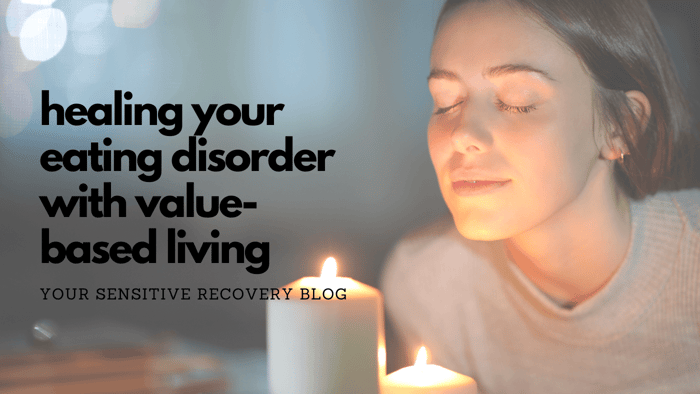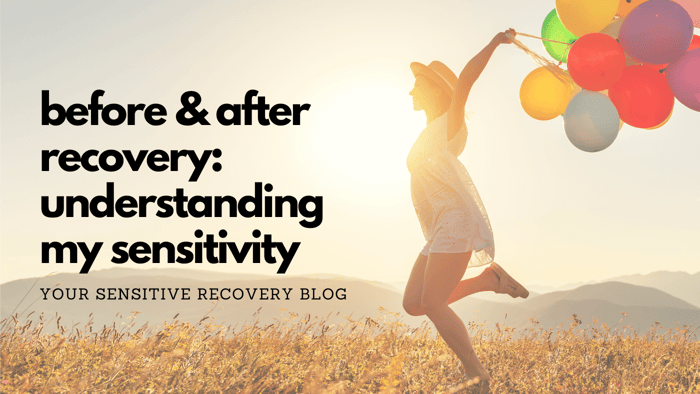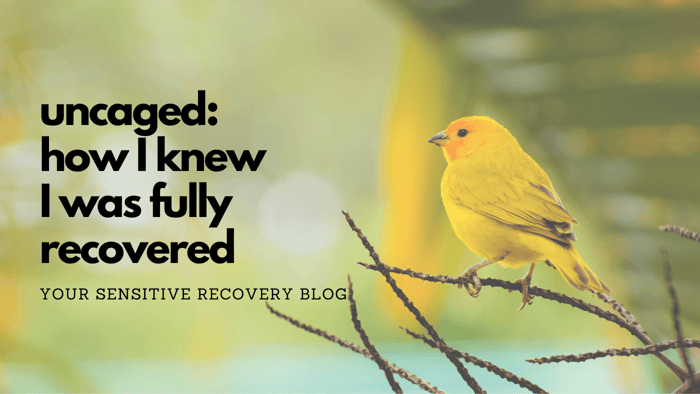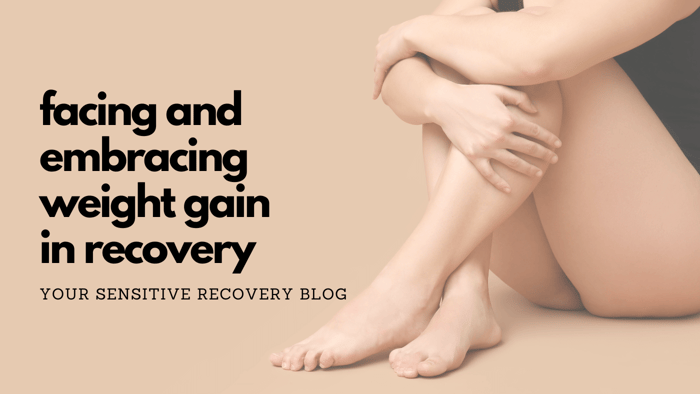If you or someone you know has ever struggled with an eating disorder, you understand full well that the behaviors and thoughts associated with one are very often misaligned with one's true values.
This is one of the reasons why coping with an eating disorder can be so maddening.
While there are numerous approaches to healing eating disorders, one powerful yet often overlooked tool is value-based living. This holistic approach focuses on aligning our actions with our core values, fostering a sense of purpose and fulfillment that transcends the need for the external validation that an eating disorder craves.
Value-based living encourages us to identify what truly matters to us, be it relationships, personal development, or creativity. By prioritizing these intrinsic values, we can begin to shift our focus away from destructive eating behaviors.
Challenging the Eating Disorder Identity
Stephen Levenkron, a psychotherapist and author describes the development of an eating disorder in four stages: achievement (behaviors, especially in the beginning, can bring about feelings of worth, satisfaction, and esteem), security (turning toward an eating disorder rather than supporters), secondary gains (amassing indirect benefits from the illness), and identity (embracing the role of an "eating disordered-person").
As an eating disorder progresses, it begins to feel like a part of who someone is - a label, a title, a descriptor. That's why the fourth stage of development can seem to so firmly cement an eating disorder into someone's way of being. It's also part of what heavily increases the ambivalence around recovery.
It's frightening to think of dismantling part of one's identity, right?
But truthfully, an eating disorder is not and never will be who you are. It is something you are going through.
This is why I am careful to avoid terms such as anorexic, bulimic, binge eater, etc.
It's no secret that eating disorders thrive on self-hate. When you live out of alignment with your values, you know it, even if you try to ignore it, and you unwittingly give the eating disorder ammunition to use against you. Value-based living and recovery fuel each other. Even just being willing to release the identity built around suffering and contempt for yourself can go a long way.
Assessing Your Personal Values
To live a more value-based life, the first thing we must do is get in touch with our personal values! I like to use value categories so that it's easier to understand and reflect on what is important. Set aside some time to reflect on the value categories below.
- relationship/social (e.g. respect, generosity, commitment)
- personal development (e.g. curiosity, growth, wisdom)
- ethics & morality (e.g. honesty, justice, responsibility)
- school/work/career (e.g. dedication, learning, professionalism)
- cultural (e.g. tradition, diversity, heritage)
- spirituality (e.g. gratitude, faith, connection)
- recreation/leisure (e.g. adventure, nature, rest)
- financial (e.g. security, generosity, frugality)
- health/wellness (e.g. self-care, fitness, mental health)
- community/advocacy (e.g. equality, sustainability, interdependence)
Step 1: In a journal, list the categories that apply to you, regardless of how aligned you are with these values at this time. Feel free to list any other categories if they come to you.
Step 2: Start by rating the importance of each area on a scale of 0-3 (0 being not all important to me, and 3 being very important to me). These numbers are just for you. It’s okay if you don’t value some of these areas at all. Simply rate each area according to your own, honest sense of its importance.
Step 3: Let's look more closely at the areas you rated as moderately or very important to you. Pause and reflect on each, then rate your satisfaction level for each area at this particular time in your life on a scale of 0-3 (0 being not all satisfied, and 3 being very satisfied).
Step 4: Finally, take a moment to write a sentence or two for each area about the impact your eating disorder has had on your ability to engage with this value or how it has altered your perception of it. Are these values different or similar to the things your eating disorder values?
Step 5: Star the values in both lists that have an importance level of 2 or 3 and a satisfaction level of 0 or 1. These are the values to focus on for now.
Settings Value-Based Intentions
What do you want these values to look like in your life? Begin by listing one or two intentions for each of your starred values. An intention reflects the direction you want to move in for the foreseeable future. It’s simply a statement of how you’d like to live.
Examples
Relationship/Social: "I want my friends to feel valued and truly known by me."
Community/Advocacy: "I want to live sustainably in a way that protects future generations."
Health/Wellness: "I want to treat my body with respect regardless of how I feel about the way it looks."
Take time to reflect on and journal about these starred values and the intentions you have set. What could you begin doing today to help you move towards your intention? Remember, small steps lead to great change.
Making Space for Change
As is the case with many things, it's easy for your intentions to become "out of sight, out of mind." Place reminders in visible areas to keep your intentions alive. Perhaps write them on sticky notes or create a phone alert that will pop up every so often. Make time to regularly reflect on why living more aligned with your values is important to you.
Behavior change is challenging. It's so important that we allow ourselves grace when we act out of alignment with our values. Grace is not the same thing as giving ourselves permission. You can read more here about why this is necessary for change.
I wouldn't be in this line of work if I didn't think it was possible for humans to make profound changes, even in the grimmest of circumstances. With some value realignment, grace, and time, you too can make great strides toward a life that makes you truly proud.
💕
✨ Josie Munroe, LMFT is a licensed therapist and owner of JosieMunroe.com and Your Sensitive Recovery As a recovered clinician and Highly Sensitive Person, she loves supporting others on their journeys to form new, empowered relationships with food, their bodies, and their sensitivity. Join the newsletter for a weekly boost of hope and inspiration. You deserve a recovery that works for you! ✨





